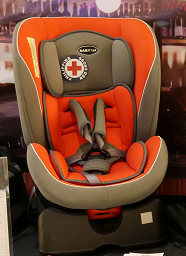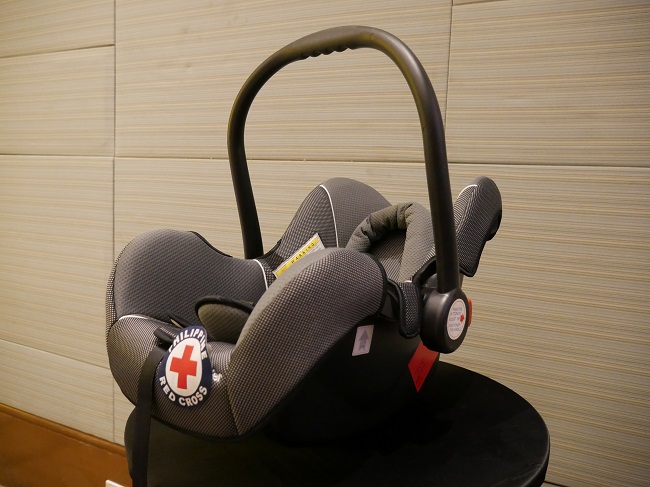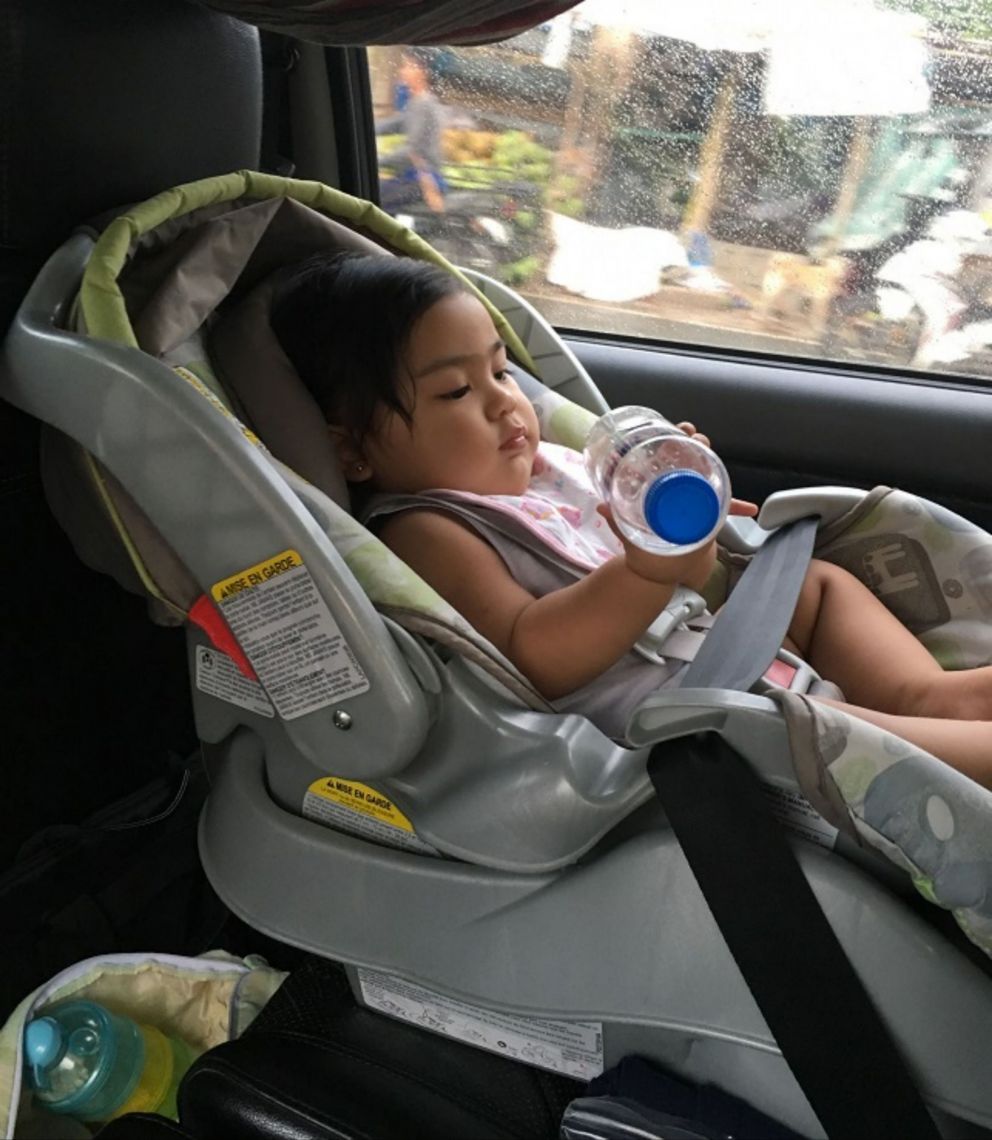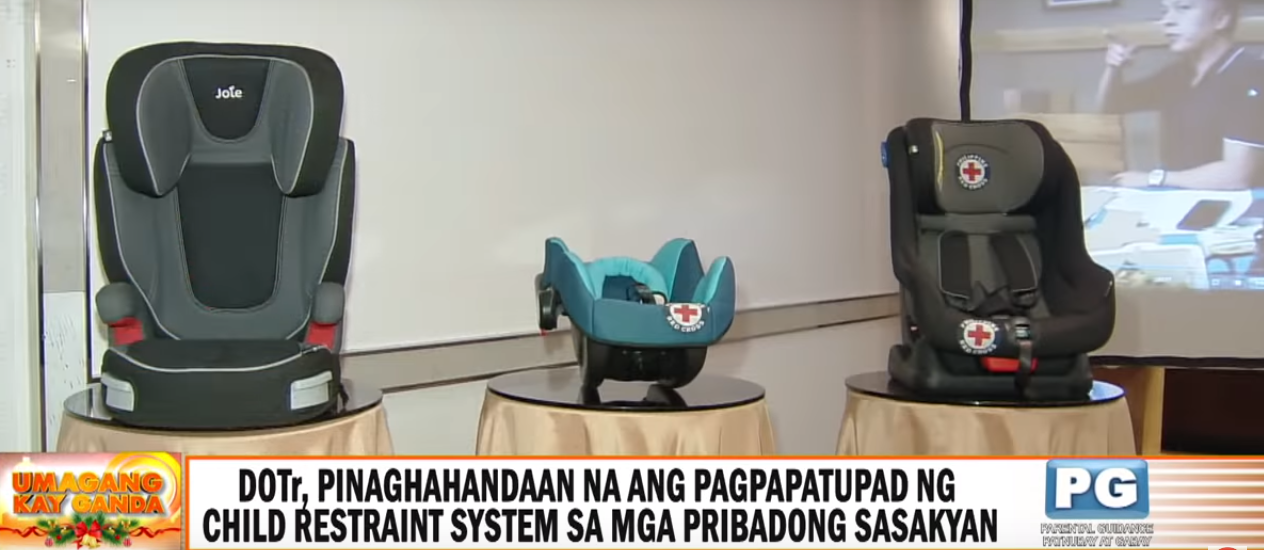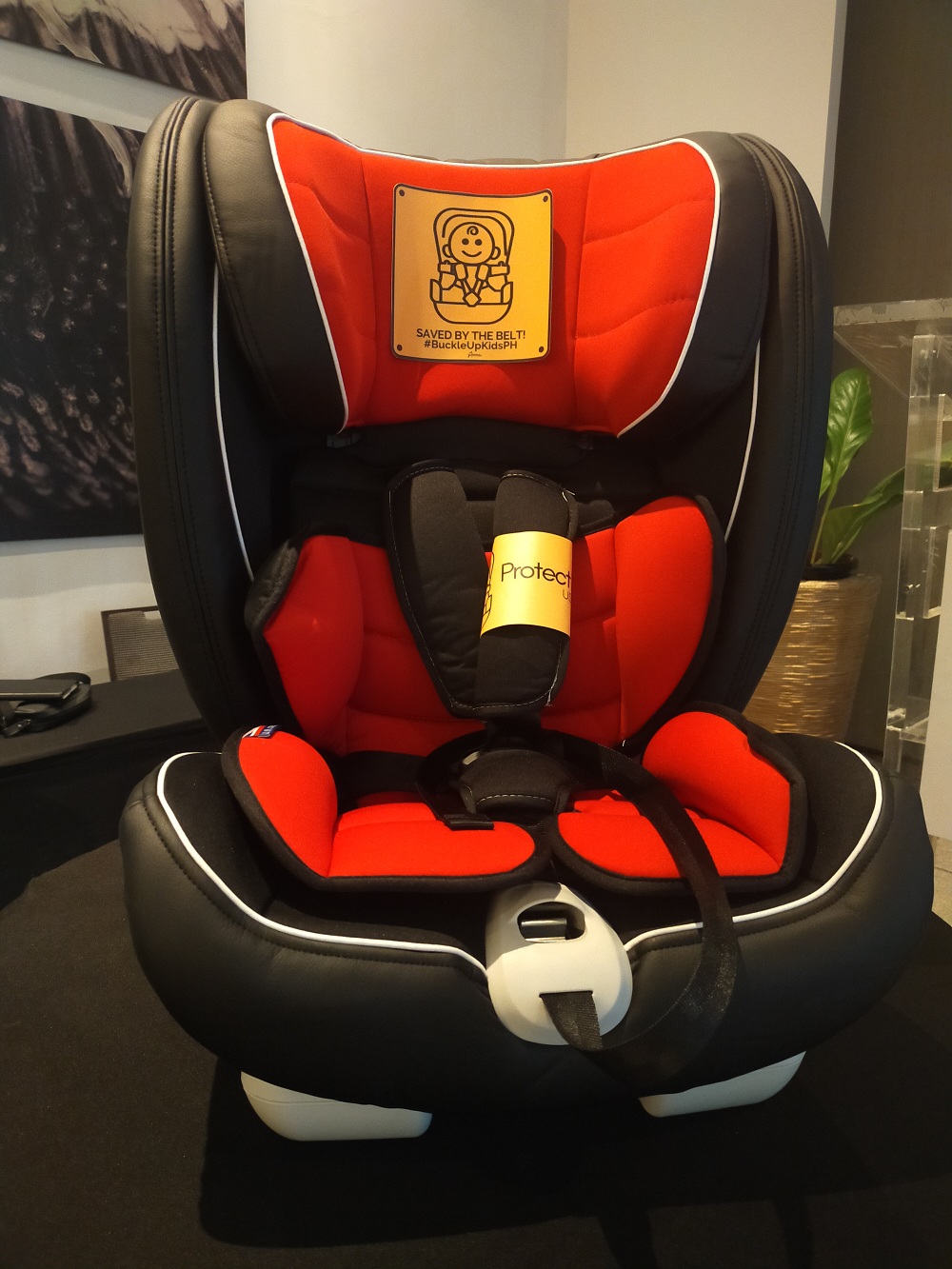The Philippines is poised to set the “gold standard” for developing countries following its enactment of a law mandating the use of car seats in private vehicles designed to protect children, who are among the most vulnerable road users.
Road safety advocate and lawyer Evita Ricafort of ImagineLaw, a public interest law organization, says the country is bound to be the model in the region for its child restraint system (CRS) legislation.
“I am honestly very optimistic that the Philippines can set the gold standard for developing countries in terms of implementing child safety seats legislation because we are among the first in this region to have the policy,” Ricafort said at a road safety forum in Quezon City on June 27.
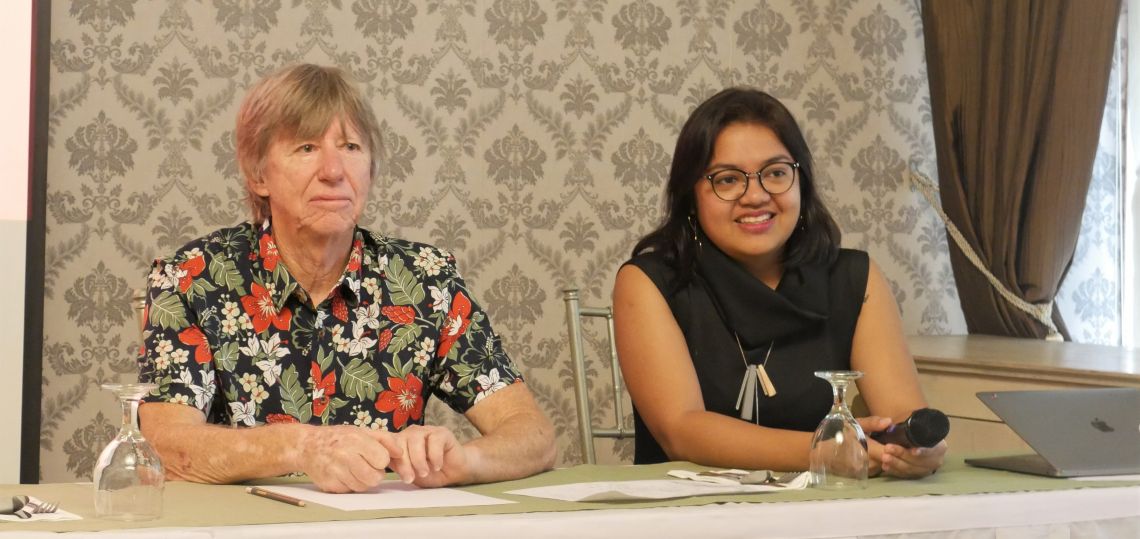
(L-R) Road safety expert Michael Griffiths and lawyer Evita Ricafort of ImagineLaw share updates on the drafting of the Implementing Rules and Regulations (IRR) of the car seat law and the use of CRS technology in the Philippines. Photo by Feona Imperial.
Australian road safety expert Michael Griffiths, who has had 40 years of experience in the field, backed Ricafort and said the Philippines has the “environment” to implement the CRS law because of its “attitude,” government support and existing product standards.
“Global road safety people approached me and said that they needed some tech expert with some technical background to help them in developing countries. What they particularly said to me was that they thought the Philippines was particularly well-placed to become a model, to set standards for developing countries,” Griffiths said.
The biomedical and mechanical engineer was invited to the country as a resource person of the technical working group (TWG) drafting the Implementing Rules and Regulations (IRR) of RA 11229 or the Child Safety in Motor Vehicles Act signed by President Rodrigo Duterte last Feb. 22.
The law prohibits children aged 12 years and below from travelling in private vehicles unless they are secured in safety seats — car seats, booster seats or car beds — which are meant to reduce the risk of injury in the event of a collision or a vehicle’s sudden stop.
RA 11229 also prohibits children from sitting in front of cars unless they are 150 centimeters or 59 inches in height and are properly secured using a regular seatbelt.
Once the law’s IRR are finalized, they will undergo scrutiny through a nationwide public consultation in August, according to Ricafort. Enforcement of the law is expected to start in September 2020, or a year after the effectivity of the implementing rules.
The TWG drafting the IRR is led by the Department of Transportation, and includes the departments of trade, health and local governments, the Philippine National Police-Highway Patrol Group and other concerned agencies. Road safety advocates are also part of the group.
Meanwhile, Ricafort noted that CRS equipment must have quality seals. CRS manufacturers, distributors, sellers and importers are required under the RA 11229 to secure Product Standard (PS) or Import Clearance Certificate (ICC) from the Bureau of Product Standards before trading. People who sell substandard, expired, or unapproved CRS equipment could face fines ranging from P50,000 up to P100,000.
“We already have a regulatory setup within the Department of Trade and Industry in terms of ensuring safety standards. So it’s a good outlook for us,” Ricafort stated.
Prices of CRS in the market range from P2,500 to P15,000. Some brands sold online go as high as tens of thousands of pesos.
However, Griffiths noted that the most expensive ones are not always the safest. He said families that cannot afford to buy CRS can be assisted through loans or rental schemes.
“The bottomline is that the cheapest restraint, whether it’s North American standard, Australian standard, or European standard, the cheapest car restraint that you will buy is offering the basic safety that you need,” he said.
Asked whether loan or rental schemes would be included in the IRR of RA 11229, Ricafort said “there is a high probability that the Implementing rules and regulations will be including references to ways on how to keep the cost low for consumers.”
“So that might include promoting rental schemes or loan schemes or just how to make sure these child safety seats are accessible to the people,” she added.
Griffiths, meanwhile, believes that implementing the CRS law in the Philippines is a learning process, citing the experience in Australia, the first country to implement mandatory seat belts.
“Clearly, there’s a lot of vehicles on your roads that don’t offer that much safety. But it’s a learning process and you have to start somewhere,” he said.
He said that if the Philippines would be successful in implementing the use of car seats, “the better the rest of the world can do it.”
The CRS law is the latest road safety intervention in the country. In 2017, the Children’s Safety in Motorcycles Act took effect, banning small children from riding motorcycles. Adult riders, meanwhile, are required to wear helmets under the Motorcycle Helmet Act.
The Philippines has an anti-distracted driving law that prohibits and penalizes the use of mobile phones and other electronic devices while driving. The country also has a Seatbelt Law that requires vehicle passengers — both in front and rear seats — to buckle up.
While laws exist, compliance is problematic and enforcement is poor or uneven.
This story has been produced with the help of a grant from The Global Road Safety Partnership (GRSP), a hosted project of the International Federation of Red Cross and Red Crescent Societies (IFRC).
